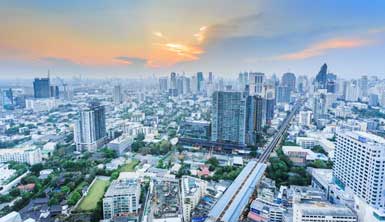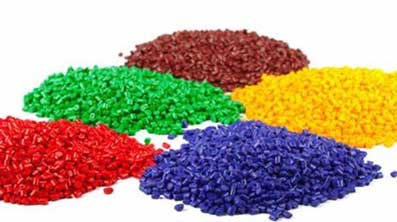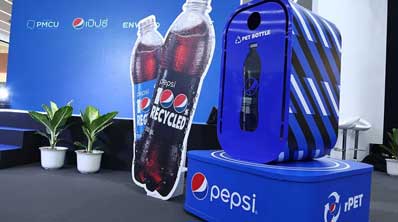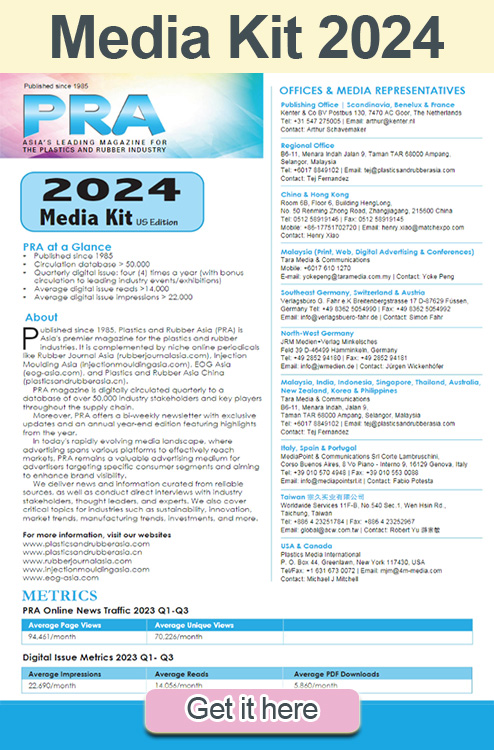CHINAPLAS 2024: Thailand rapidly progresses to become a leading industrial powerhouse in SEA

Thailand is showing strong performance as an industrial powerhouse in Southeast Asia’s ever expanding manufacturing sector. This is due to several factors, including an abundant supply of raw materials, low labour costs, favorable government incentives and excellent infrastructure.
According to a report by Technavio, the plastic market in Thailand is expected to grow by US$ 8.63 billion between 2022 and 2026. Increased demand for plastics in packaging, automotive, building and constructions as well as medical and electronics manufacturing will drive the growth of the plastics market in the next few years.
Thailand serves as both an exporter and importer of plastics. According to a recent report by ReportLinker, its plastics imports are projected to reach US$11 billion by 2026, growing at an average of 2% annually. Additionally, exports of Thai plastics are also on the rise, expected to reach US$17 billion by 2026.
In terms of production process, injection moulding remains the most popular choice, as reflected in the continuous high demand for injection molded plastics in different end-user sectors, such as packaging, automotive, building and construction, as well as electronics and electrical.
The size of Thailand’s injection moulding plastics market is set to reach US$13.2 billion by 2032, according to another study by ReportLinker. The surge in demand for environmentally friendly plastic goods is driving the need for injection moulding machinery and technologies capable of processing recycled materials.
Furthermore, the plastic extrusion equipment and machinery market in Thailand is projected to grow substantially by 8.6% yearly until 2026, according to 6WResearch. This increase is attributed to the rising demand from end-user industries such as automotive, electronics and electrical, building and construction. Also, rapid urbanisation has led to increased investments in state-of-the-art extrusion facilities.
Attractive production site for eco-friendly ventures

Thailand remains the first choice for major global companies looking to enter the Southeast Asian market. Similarly, Thai conglomerates are also making their debut in the global market with international ventures. The country has gained importance as the world’s second-largest producer of bioplastic products, according to the Thai Bioplastics Industry Association (TBIA). With an abundant supply of raw materials like sugarcane and cassava, Thailand is increasing its annual bioplastics production capacity of 95,000 tonnes to 170,000 tonnes as manufacturers expand their output, among which around 90% are exported.
A number of key projects are providing bright prospects for the country’s circular economy goals. Indorama Ventures, the world’s leading producer of polyethylene terephthalate (PET), is investing US$1.5 billion to expand its plastics recycling operations in Thailand. The company is planning to boost its annual recycling capacity from 250,000 tonnes to 750,000 tonnes by 2025. It aims to incorporate 20% recycled materials in the 4 million tonnes of PET it supplies yearly to the beverage industry. Thailand-based Envicco Limited is currently operating its recycled plastic plant in Map Ta Phut, Rayong, with an annual capacity of around 45,000 metric tonnes of recycled PET.
Circulate Capital, a circular economy investment management firm, made a strategic investment in Thai polyolefins recycler Union J.Plus (UJP). The capital will enable UJP to strengthen its operations and speed up its expansion, starting with the acquisition of an 18,000-TPA capacity low-density polyethylene (LDPE) recycling facility located in Samut Prakan. When fully operational, the plant is expected to have a total recycling capacity of more than 30,000 TPA, including 20,000 TPA of premium/food-grade polyolefins (PO). The investment also marks Circulate Capital’s first venture in Thailand.
NatureWorks, a leading manufacturer of polylactic acid (PLA) biopolymers made from renewable resources, has made significant progress on the construction of its fully integrated Ingeo PLA biopolymer manufacturing facility in Nakhon Sawan Province. The production complex will include three manufacturing facilities: lactic acid fermentation, lactide monomer production, and polymerisation. With an annual capacity of 75,000 tonnes of Ingeo biopolymer, the plant will produce the full portfolio of Ingeo grades.
This investment is part of NatureWorks’ commitment to providing customers with full access to biobased, low-carbon biomaterials that are highly valued in the global downstream packaging and fibre markets.
Birla Carbon, Indian carbon black manufacturer, also announced plans to build two new plants: one in Rayong Province in Thailand and the other in India. The plants, which are scheduled to be launched in 2025, will each have an annual capacity of 120,000 tonnes.

Another step towards achieving circularity in plastics is made by Suntory PepsiCo Beverage (Thailand) Co. Ltd., which is now using bottles made from 100% recycled polyethylene terephthalate (rPET) under its campaign, “Fizzy Consciousness to Change the World.” Suntory Pepsico has partnered with the Property Management of Chulalongkorn University (PMCU) Thailand and Envicco for this project. The company plans to launch its 550 ml Pepsi and Pepsi No Sugar products in the rPET bottles. Other Suntory PepsiCo Thailand products, such as the ready-to-drink Tea + Oolong tea, will be launched in the rPET bottles afterwards
Braskem and SCG Chemicals have partnered to produce bio-ethylene through bio-ethanol dehydration and to commercialise Braskem’s “I’m green” bio-based polyethylene (PE). The EtE evergreen technology is the result of a development and licensing partnership between Braskem and Lummus Technology. The “I’m green” bio-based polyethylene is made from ethanol derived from agricultural sources, as opposed to traditional naphtha. The resulting PE can be used in a variety of consumer products and is suitable for recycling, just like regular PE.
Kuraray, in collaboration with PTT Global Chemical Public Company Limited (GC) and Sumitomo Corporation, has jointly established a manufacturing plant named Kuraray GC Advanced Materials Co., Ltd. This plant aims to enhance and develop competitiveness in the Eastern Economic Corridor (EEC) region. The project is part of Kuraray's long-term sustainable development strategy, which seeks to meet the growing demand from the automobile, electronics, and electrical industries.
Kuraray owns the advanced technology for producing Super Engineering Plastic Polyamide 9T (PA9T) under the brand Genestar, and Hydrogenated Styrenic Block Co-Polymer (HSBC) under the brand Septon. Meanwhile, GC provides the raw materials and public utilities for the project, and Sumitomo Corporation contributes a global marketing network to expand the market worldwide.
Coca-Cola Business Group in Thailand is set to introduce packaging made from 100% recycled plastic, excluding labels and bottle caps. In more than 40 countries around the world, including Indonesia, Myanmar, Vietnam, and most recently Thailand, Coca-Cola offers at least one product brand with this type of packaging. The use of such packaging is in line with Coca-Cola's global sustainability goals of making all Coke packaging 100% recyclable by 2025 and using packaging composed of at least 50% recycled materials by 2030.
At Chinaplas 2024, Thailand-based plastics and rubber manufacturers will have the opportunity to explore the latest technologies and material solutions that can enhance their production processes. The mega exhibition showcases the most advanced technologies for food & beverage packaging, automotive and tire production, as well as materials for the rapidly growing manufacturers in Southeast Asia who seek a wider range of machinery, equipment, and engineering plastics. For more information, please visit: www.chinaplasonline.com. (Press Release)
(IMA)Subscribe to Get the Latest Updates from IMA Please click here
©2024 Injection Moulding Asia. All rights reserved.















